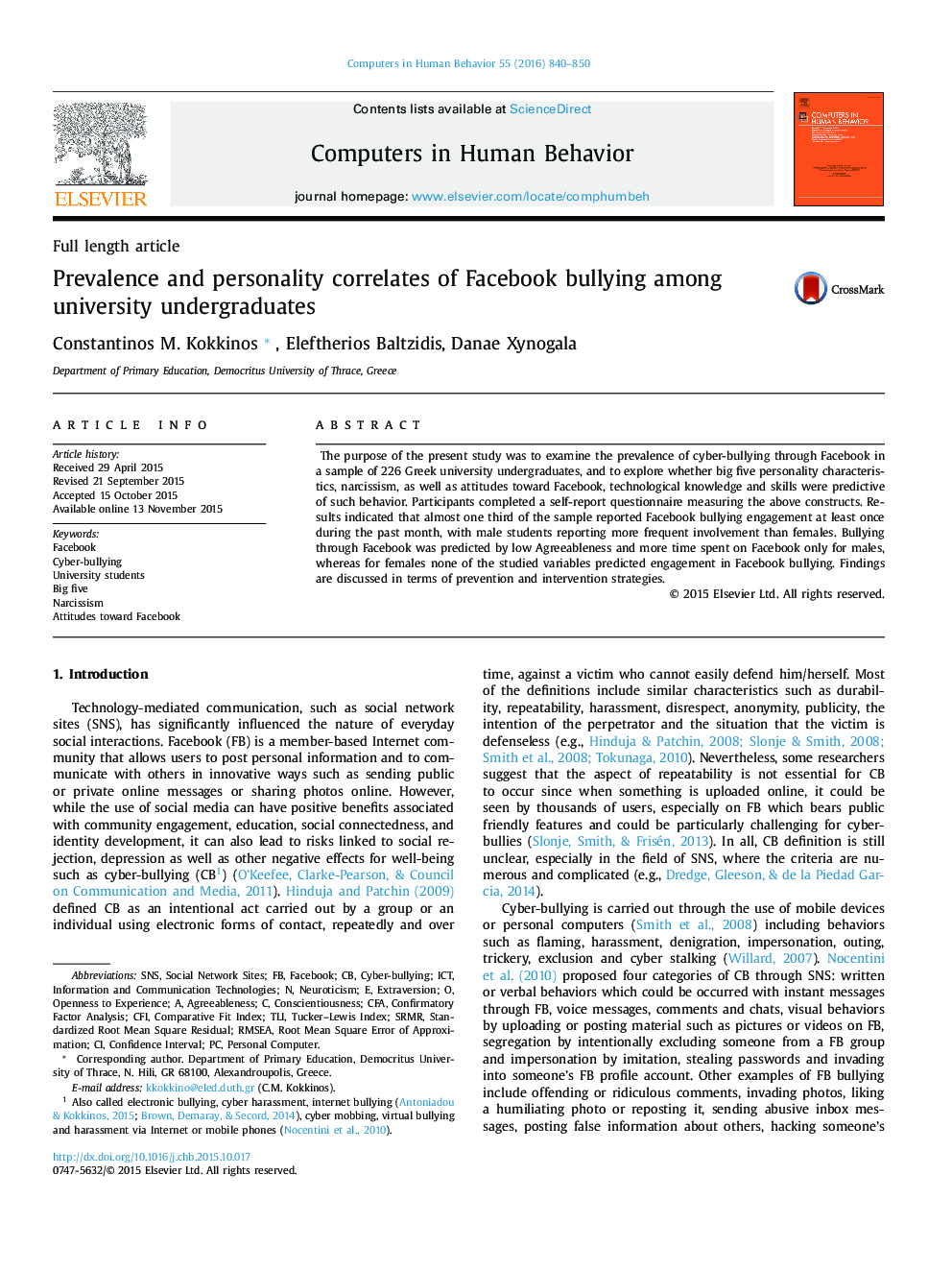| Article ID | Journal | Published Year | Pages | File Type |
|---|---|---|---|---|
| 10312715 | Computers in Human Behavior | 2016 | 11 Pages |
Abstract
The purpose of the present study was to examine the prevalence of cyber-bullying through Facebook in a sample of 226 Greek university undergraduates, and to explore whether big five personality characteristics, narcissism, as well as attitudes toward Facebook, technological knowledge and skills were predictive of such behavior. Participants completed a self-report questionnaire measuring the above constructs. Results indicated that almost one third of the sample reported Facebook bullying engagement at least once during the past month, with male students reporting more frequent involvement than females. Bullying through Facebook was predicted by low Agreeableness and more time spent on Facebook only for males, whereas for females none of the studied variables predicted engagement in Facebook bullying. Findings are discussed in terms of prevention and intervention strategies.
Keywords
CFARMSEATLISNSSRMRCFIOpenness to experienceExtraversionConfirmatory Factor AnalysisNarcissismUniversity studentsNeuroticismStandardized root mean square residualRoot mean square error of approximationCyber-bullyingSocial network sitesTucker–Lewis indexComparative Fit Indexconfidence intervalInformation and communication technologiesICTFacebookBig Fiveagreeablenessconscientiousnesspersonal computer
Related Topics
Physical Sciences and Engineering
Computer Science
Computer Science Applications
Authors
Constantinos M. Kokkinos, Eleftherios Baltzidis, Danae Xynogala,
